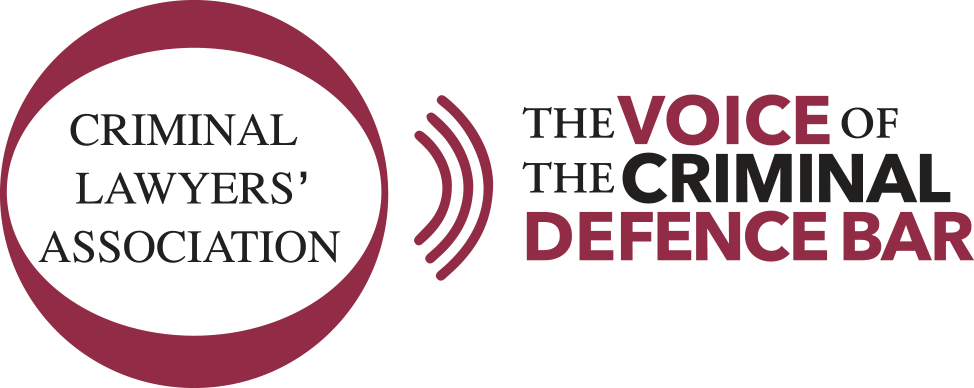Toronto Domestic Assault Lawyer - Protecting Your Rights, Defending Your Future
Charged with domestic assault? Sadro Law provides immediate legal support, strategic defence, and a commitment to resolving your case with care and discretion.
Understanding Domestic Assault Charges in Ontario
In Ontario, domestic assault is treated as a serious criminal offence, even though the law does not define it separately from general assault. What sets it apart is the context: domestic assault involves allegations of violence, threats, or physical force between individuals in an intimate or familial relationship. This can include spouses, common-law partners, dating couples, parents and children, or other people living in the same household.
Under Section 265 of the Criminal Code of Canada, assault is defined as the intentional application of force to another person without their consent, or any act that causes someone to reasonably fear such force. In a domestic context, the law is enforced with a zero-tolerance policy. If police are called to a domestic incident and believe there are reasonable grounds, they are obligated to make an arrest, even if the alleged victim does not wish to press charges.
What many people don’t realize is that once charges are laid, the case becomes a matter between the accused and the Crown Attorney. The complainant cannot simply “drop the charges.” In fact, many domestic assault cases proceed despite the complainant asking for the charges to be withdrawn. This is because the prosecution is focused on public safety and views domestic violence as a serious issue with a high risk of recurrence.
The consequences of being charged with domestic assault in Ontario can be immediate and severe. You may face strict bail conditions, including no-contact orders, restrictions on returning to your own home, and even temporary loss of access to your children. These measures can disrupt your life long before you even appear in court.
At Sadro Law, we understand how emotionally complex and high-stakes these cases are. We help you navigate the legal system with a focus on protecting your rights, minimizing damage to your personal life, and resolving your case as efficiently and discreetly as possible.
Why Domestic Assault Cases Are Treated Differently
Domestic assault charges in Ontario are not handled like other assault cases. From the moment of arrest, these matters enter a specialized legal stream that reflects the seriousness with which the justice system views allegations of violence in intimate or familial relationships. In many jurisdictions, including Toronto, domestic assault cases are reviewed and prosecuted by dedicated Crown units that focus exclusively on domestic violence offences. These prosecutors are trained to pursue these cases aggressively, even in the absence of physical injury or prior criminal history.
One of the most immediate consequences of a domestic assault charge is the imposition of strict bail conditions. Courts routinely order “no contact” clauses that prevent the accused from speaking to or communicating with the complainant, even through third parties. In many cases, you're also barred from returning to your own home, which can create immense disruption, especially when children or shared property are involved. These conditions can remain in place for months, regardless of how the complainant feels about continuing with the case.
Perhaps most troubling for many accused individuals is the fact that domestic assault charges almost always proceed, even if the complainant no longer supports the prosecution. Once charges are laid, the Crown Attorney takes over, and the complainant becomes a witness for the state, not a party to the case. This means that a momentary argument or false accusation can spiral into a full criminal proceeding, even when both parties want to reconcile.
Beyond the courtroom, the collateral consequences of a domestic assault charge can be devastating. You may face complications in family law proceedings, including custody disputes and access to children. A conviction, or even the accusation itself. can threaten your immigration status, limit your ability to travel, and cause irreparable harm to your employment, especially in professions requiring background checks or security clearance.
At Sadro Law, we understand what’s at stake. We approach domestic assault cases with the urgency, discretion, and strategic insight they demand — always working to minimize legal consequences and protect what matters most to you.
Types of Domestic Assault Offences We Defend
At Sadro Law, we defend clients facing the full range of domestic assault charges, from verbal threats and minor altercations to serious allegations involving injury or weapons. These offences are treated with heightened scrutiny by Ontario’s justice system, but with the right defence, they can often be resolved without a conviction. Here are the most common types of domestic assault cases we handle:
Physical Assault (With or Without Injury)
The most frequent domestic assault charges involve an allegation of physical contact, such as pushing, grabbing, slapping, or restraining, regardless of whether an injury occurred. Even minimal or momentary contact can result in charges if the other person claims it was non-consensual. We work to present your version of events, challenge inconsistencies, and pursue alternatives like peace bonds or diversion where appropriate.
Mischief or Property Damage During a Domestic Dispute
Damaging property — even shared property — during a domestic argument can lead to charges of mischief under or over $5,000. This could include breaking a phone, punching a wall, or throwing objects. We often help clients resolve these charges through counselling, restitution, or diversion programs that avoid a criminal record.
Verbal Threats and Intimidation
Not all domestic assault charges involve physical violence. If you are accused of making threats or using intimidating language or gestures that caused fear in your partner or family member, you may be charged with uttering threats or intimidation. These charges often arise during heated arguments and may lack physical evidence, making them highly defensible with the right legal strategy.
Allegations of Choking or Confinement
Allegations of choking, strangulation, or forcible confinement are treated as extremely serious and often prosecuted more aggressively. These charges can trigger stricter bail conditions and carry significant jail time upon conviction. Sadro Law carefully examines medical evidence, timelines, and witness accounts to challenge the reliability of such claims and build a strong defence.
Assault with a Weapon
This charge applies when an object, even a household item like a phone, plate, or key, is alleged to have been used during a domestic incident. A weapon does not need to cause injury to qualify. We focus on intent, context, and proportionality, often revealing that the situation was misinterpreted or the object was not used aggressively.
Breach of No-Contact Orders
If you're accused of violating bail conditions or a court-issued no-contact order, you may face additional charges. These breaches are taken very seriously and can complicate your underlying domestic assault case. We provide urgent representation to address alleged breaches, seek bail variations, and defend you against further penalties.
Common Scenarios That Lead to Charges
At Sadro Law, we understand that domestic assault charges often arise from emotionally charged moments, not from patterns of violence or criminal intent. Many clients are shocked to find themselves facing criminal allegations after a single argument or misunderstanding. Below are some of the most common situations that lead to domestic assault charges in Ontario.
What Happens After a Domestic Assault Arrest
Being arrested for domestic assault in Ontario is a serious event that can feel overwhelming and confusing, especially if it's your first time dealing with the criminal justice system. At Sadro Law, we help you understand what to expect from the moment you're taken into custody to your first court appearance and beyond. Early legal intervention is critical, as the steps that follow can quickly impact your freedom, family, and future.
1. Immediate Arrest and Police Custody
In most domestic situations, once the police are called and believe an offence may have occurred, they are required to lay charges. Even if the complainant says they don’t want to press charges or changes their story, the police may still arrest you and remove you from the home. You will typically be held in custody until you appear before a judge for a bail hearing, usually within 24 hours.
2. Bail Hearing and Restrictive Conditions
At the bail hearing, the court will decide whether you can be released and under what conditions. In domestic assault cases, bail often comes with strict terms, including:
- No contact with the complainant (even through family or friends)
- No return to the shared residence
- No contact with children, if they were present or named in the complaint
3. Court Process and Next Steps
Once released, your case will proceed through the court system. Your first court date is an administrative appearance, where you or your domestic assault lawyer will receive disclosure, the evidence the Crown intends to use against you. There will be multiple opportunities to negotiate with the Crown, propose alternative resolutions (such as a peace bond or diversion), or prepare for trial, depending on the strength of the case and your goals.
Throughout this process, having a knowledgeable and responsive domestic assault lawyer is essential. At Sadro Law, we take immediate steps to protect your rights, assess the evidence, and work toward a resolution that minimizes the impact on your life, whether that means avoiding a criminal record, reuniting with your family, or securing a full acquittal.
Contact us right away if you or someone you know has been arrested for domestic assault. The earlier we get involved, the stronger your defence will be.
Our Approach to Domestic Assault Defence
At Sadro Law, we understand that no two domestic assault cases are alike, and no two clients face the same personal, legal, or emotional challenges. That’s why our defence approach is tailored, strategic, and always aligned with your unique circumstances and long-term goals.
Potential Outcomes in Domestic Assault Cases
Domestic assault charges can feel overwhelming, but a charge does not equal a conviction. With the right legal strategy, many domestic assault cases in Ontario are resolved without jail time or even without a criminal record. At Sadro Law, we work closely with you to understand your goals and fight for the outcome that protects your freedom, family, and future.
1. Charges Withdrawn
In many cases, especially where the complainant is unwilling to testify or the evidence is weak, the Crown may agree to withdraw the charges entirely. This is often possible through pre-trial negotiations or after completing counselling, anger management, or other rehabilitative steps. Once withdrawn, the case is closed, and you walk away without a criminal conviction.
2. Peace Bond Resolution
A Section 810 Peace Bond is a common way to resolve domestic assault charges without admitting guilt. You agree to abide by certain conditions (such as no contact or counselling) for up to 12 months, and in exchange, the criminal charge is withdrawn. A peace bond is not a conviction and does not result in a criminal record, making it an ideal solution in many first-time offence cases.
3. Diversion or Alternative Measures
For clients with no prior criminal record, especially in cases involving minor or non-violent incidents, diversion programs may be available. These may include completing community service, attending counselling, or writing a letter of apology. Successful completion typically results in the charge being stayed or withdrawn, keeping your record clean.
4. Discharge (Absolute or Conditional)
If you plead guilty but there are significant mitigating factors, the court may grant an absolute or conditional discharge. This means you are technically found guilty but do not receive a criminal conviction. A conditional discharge includes probationary terms, while an absolute discharge does not. Either option prevents a permanent record and can help you move on with your life.
5. Reduced Charges
In some situations, we negotiate with the Crown to have a serious domestic assault charge reduced to a lesser offence, such as mischief or summary assault. This can lead to lighter penalties, avoidance of jail, or eligibility for a discharge or fine. Reducing the charge also minimizes the impact on employment, immigration, and family law matters.
6. Full Acquittal at Trial
If a resolution is not possible, or if you're wrongfully accused, we are fully prepared to take your case to trial. A successful trial may result in a complete acquittal, meaning the court finds you not guilty and you are fully cleared of the charges. Sadro Law brings years of courtroom experience, cross-examination skill, and legal strategy to every trial.
Why Choose Sadro Law for Domestic Assault Defence
When you're facing a domestic assault charge, you need more than legal advice — you need a domestic assault lawyer who understands the emotional weight, legal complexity, and personal impact of your situation. At Sadro Law, we provide strategic, discreet, and results-driven defence designed to protect your freedom, your record, and your reputation. Here’s what sets us apart.
List of Services
-
Focused Experience in Domestic Assault CasesList Item 1
Domestic assault charges are different, and they require a lawyer who knows how these cases are prosecuted, how bail conditions affect families, and how to pursue solutions that avoid long-term consequences. Sadro Law has extensive experience handling domestic cases throughout Toronto and the GTA. We understand the unique pressures these charges create and how to navigate them effectively.
-
Personalized and Discreet Legal SupportList Item 2
We know these cases are often emotional, sensitive, and deeply personal. That’s why we provide a confidential, judgment-free environment where you can speak openly and get clear answers. You’ll work directly with a domestic assault lawyer who listens to your story, respects your goals, and tailors a strategy based on your needs, not a cookie-cutter approach.
-
Strategic Negotiation and Skilled Trial AdvocacyList Item 3
Whether it’s negotiating a peace bond, pursuing diversion, or challenging the charges in court, we bring sharp negotiation skills and courtroom strength to every case. We understand how to work with the Crown, when to press for withdrawal, and how to mount a compelling defence at trial when needed.
-
Proven Results and Client-Focused AdvocacyList Item 4
We’ve helped countless clients resolve domestic assault charges without a criminal record — even in cases that seemed stacked against them. Our proactive approach and commitment to early intervention have led to peace bond resolutions, complete withdrawals, and successful trial acquittals. When we take on your case, our focus is on your future, and we don’t back down until we’ve explored every option.
See What Our Clients Have to Say
Frequently Asked Questions
A Commitment to Excellence Across All Legal Services
At Sadro Law, we recognize that navigating the legal system in Toronto can be one of life's most challenging experiences. That's why we prioritize a personalized approach for each client to ensure your needs are meticulously addressed. Across our diverse range of services, whether you're dealing with criminal charges, navigating the complexities of licence suspensions, or seeking to remove a criminal record, we bring a wealth of experience and tailored strategies to the table. Our team, based in Toronto and proficient in areas such as assault and impaired driving cases, collaborates with you to develop a robust legal strategy aimed at achieving your goals. With Sadro Law, you can expect dedicated attention, expert guidance, and a steadfast commitment to securing a favorable outcome.
Your Defence Starts Here
Facing a domestic assault charge in Toronto can feel overwhelming, but you don’t have to go through it alone. At Sadro Law, we provide immediate, strategic, and results-driven defence focused on protecting your rights, reputation, and future from the very beginning.
Free Consultation – No Obligation
Tell us about your case. We’ll review your situation and explain your best legal options — confidentially and without pressure.
Why Choose Sadro Law
- Toronto-based criminal defence firm
- Proven courtroom results
- Personal, compassionate guidance
- Available 24/7 for urgent legal matters
Request a Free Consultation
Criminal Law Form
What Happens After You Contact Us
- Request a free, no-obligation consultation by filling out a short form.
2. Our domestic assault lawyers will contact you promptly to discuss your situation.
- After assessing your case and goals, we’ll create a clear defence strategy and take immediate action on your behalf.













